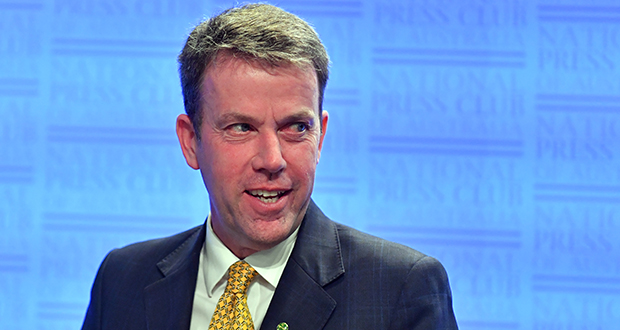Deep concerns were raised last week by the Australian Academy of the Humanities regarding the government’s proposed changes to university course fees, which will privilege a range of in-demand subjects (including nursing and teaching) and discourage students from embarking on humanities degrees.
“This is potentially the greatest hit to Australia’s humanities sector in a century,” Professor Joy Damousi, President of the Australian Academy of the Humanities, said.
The academy argues that at a time when the government is trying to combat disinformation and develop ethical artificial intelligence (AI), the subjects which are “the source code of these industries” – applied ethics and media and communication studies, for example – “are taking a hit under this new plan”.
“Nothing we have heard from the government justifies their decision," Damousi continued.
“Evidence shows that the skills and knowledge from humanities and social sciences training – including critical thinking, communication skills and understanding the impact of change on humanity – are highly valued by employers and in the workforce.
“There is a clear disconnect in the government’s thinking around the issue of qualifications and employment. Disincentivising studies in humanities courses will actually have the opposite effect to that intended by the government. It will directly and adversely impact the government’s future jobs agenda.”
The academy argued, for instance, that the education sector (which has been identified as crucial to Australia’s future) “is the single biggest destination for humanities graduates, based on the employees working in the sector holding a humanities degree as their highest qualification according to the 2016 ABS census".
Australia’s peak body for the humanities also highlights the government's own job projections, with the top five jobs prospects for humanities graduates behind education and training being public administration and safety; professional, scientific and technical services; health care and social assistance; arts and recreation services. These vocations have all been tipped for significant growth in the near future, according to the academy.
According to research, Australia’s most successful companies incorporate a degree of “skill mixing”, merging graduates of humanities, arts and social sciences (HASS), with STEM subjects including engineering, science and mathematics.
“There are some humanities disciplines that do well in the new funding structure, such as languages and English,” said Damousi, “but the rationale behind subjects such as philosophy and history taking such a hit to Commonwealth funding is unclear and unfathomable.
“These changes also introduce perverse incentives in the system by making interdisciplinarity an onus for students in philosophy and ethics to study computer science, but not the other way around. This should alarm all Australians.”
Also concerning the academy is the effect these fee changes will have on regional parts of the country, where the economies are supported by professionals in education, social services, health, tourism and creative industries.
“If this is our government’s vision of Australia’s ‘new normal’ coming out of the COVID-19 pandemic, today we started a journey on a slippery downward slope,” Damousi warned.
“The Minister today referred to the founder of the Liberal Party Sir Robert Menzies and his harnessing of the higher education system post WWII to make Australia stronger than before the war. Menzies saw the humanities as central to that recovery, both in building a better, more humane society, but also for a competitive economy.”
The academy also called the decision “a bitter irony” as the announcement was made by Education Minister Dan Tehan, himself a humanities graduate. Indeed, three recent Prime Ministers – Gillard, Rudd and Turnbull – all built successful careers after studying humanities degrees.
The academy has urgently called for the federal government to justify its decision by providing “access to the evidence that underpinned that policy change” and engage in urgent dialogue regarding the proposed changes.
The Australian Council of Deans of Arts, Social Sciences and Humanities (DASSH) shares the academy’s concerns regarding the fee-hike to humanities students announced by Minister Tehan on Friday.
DASSH members see the “reductions in student support for students undertaking degrees in humanities and social sciences, including law, economics, management and communications as a failure to recognise the contributions of our graduates to the nation’s economy, society and future”.
Although the council welcomes the increase in the number of Commonwealth-supported places at universities, it also highlights that “Australia requires graduates with diverse skillsets. DASSH members also contend that students deserve the opportunity to choose courses that best suit their future career aspirations at a reasonable cost.
“Friday’s announcement from Minister Tehan is disappointing and short-sighted,” Professor Mandy Thomas, President of DASSH said.
“Our graduates possess some of the most adaptable skill sets of any university-educated workers and are uniquely placed to fulfill the workforce needs of the future.
“Time and again, studies find that the future labour-force will be reliant on the human skills of communication, creativity and critical thinking, and this new funding model has the potential to drive students away from these fields or disadvantage students seeking those learning experiences,” Thomas added.
Indeed, a 2018 report published by DASSH concluded that the Humanities, Arts and Social Sciences (HASS) disciplines supply a substantial two-thirds of Australia’s workforce. It also found HASS degrees are highly “prized and increasingly sought-after across industry groups”, although they have been “undervalued historically”.
As DASSH pointed out, Tehan’s latest actions would indicate this undervaluing to have some veracity.
Do you have an idea for a story?Email [email protected]
 Campus Review The latest in higher education news
Campus Review The latest in higher education news

